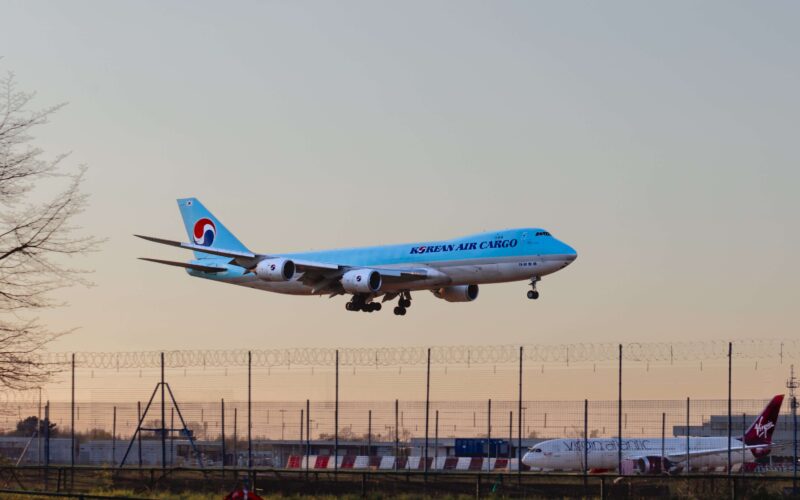Korean Air reported a revenue of KRW 2.8052 trillion ($2.3168 billion) and a “record quarterly operating profit” of KRW 788.4 billion ($651.1 million) in its first quarter financial results.
Its previous quarterly operating profit was recorded in Q4 2021, at KRW 704.4 billion ($559.3 million).
The Seoul-based carrier attributes its increased revenue to the use of its grounded passenger jets on cargo routes and increasing its freighter operation rates.
During the same quarterly period in 2021, Korean Air recorded a revenue of KRW 1.7498 trillion ($1.4452 billion) and an operating profit of KRW 124.5 billion ($102.8 million).
However, the airline also noted that the air cargo market is still subject to uncertainty due to global supply chain bottlenecks, capacity shortfalls across European routes, and inflated fuel prices.
“Korean Air is taking preemptive measures to maintain its air cargo capacity through close management of ground handling operations and flexible network operations,” the airline said in a statement published on its website.
Passenger business set to ‘quickly recover’ in 2022
Despite the spread of the COVID-19 Omicron variant, Korean Air expects its passenger business to quickly recover in 2022, as more countries continue to ease entry restrictions and open their airspaces.
In the first quarter of 2022, Korean Air’s passenger flight operations generated a revenue of KRW 359.8 billion ($285 million).
“The recovery of passenger demand will vary by route and region, and the airline will closely monitor and flexibly respond to the market and changing quarantine policies of its network,” the airline said.
On March 21, Korea lifted the mandatory quarantine for fully vaccinated travelers, helping to boost travel demand.
“Recovery in global passenger demand is foreseen to gradually boost global air cargo capacity, but instability in regional air cargo markets is expected to persist due to major Chinese city lockdowns and the war in Ukraine,” the airline said.
In addition to its operating results, Korean Air noted that it had managed to “significantly improve its financial structure by reducing debt”.
The airline’s debt ratio (the income an airline generates to pay off its debt) decreased from 814% at the end of 2019 to 255% during the first quarter of 2022. This is a reduction of 559%, making this the airline’s lowest debt ratio since 2011.
According to its statement, Korean Air has secured over KRW 4 trillion ($ 3 billion) worth of cash and cashable assets, giving it the flexibility to respond to market uncertainties.

